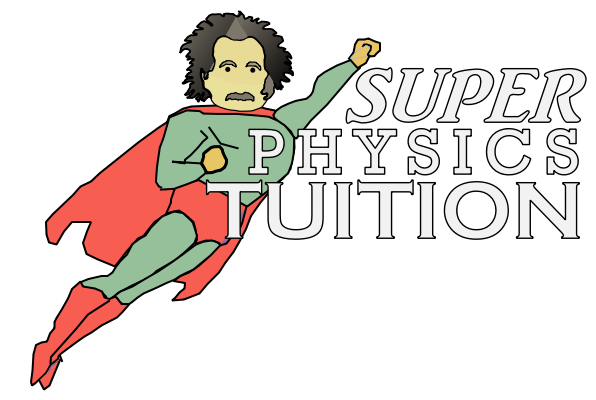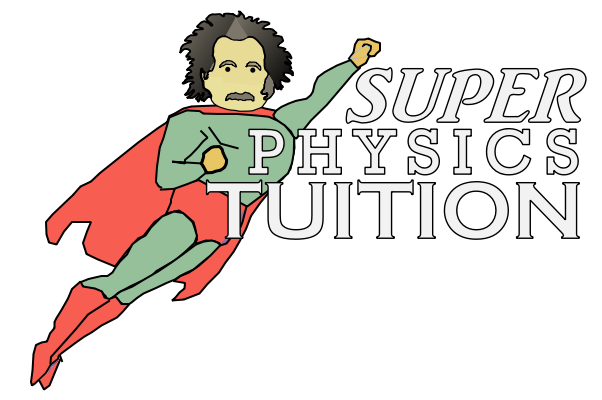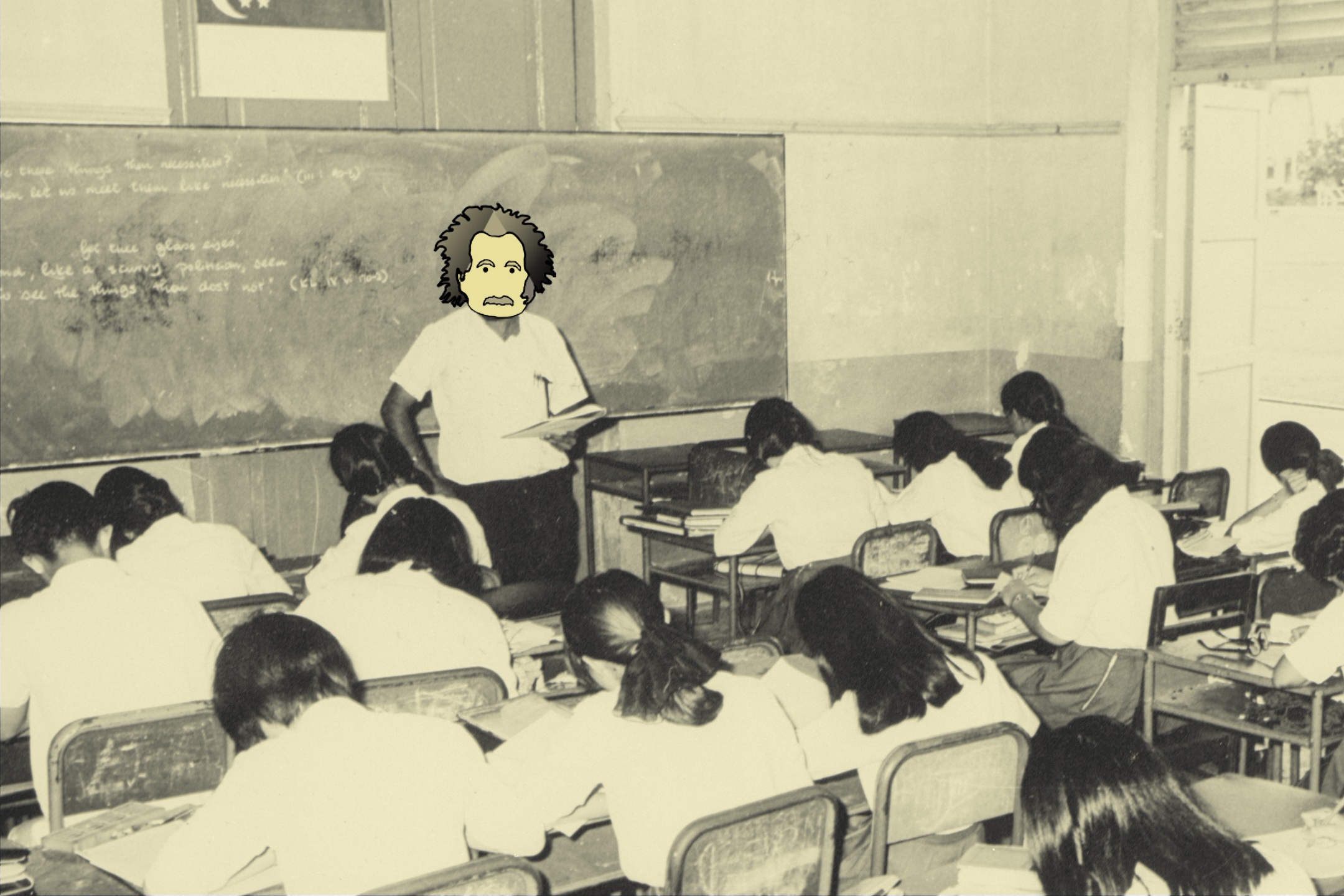After selecting H2 Physics, some of my students are asking me about whether they should also take H3 Physics in JC. Before I answer that question, we first need to understand what a H3 subject is.
H3 subjects can be thought of as the bridge between JC and University. H3s tend to be intellectually challenging since the focus is now on the depth, rather than the breadth of a subject.
Essentially, taking a H3 allows you to specialize in a subject.
H3 subjects are usually only offered to students who did well for their promotional exams since the concepts can only be understood at a higher level.
How to benefit from taking a H3 subject?
There’s some confusion about how a H3 subject affects your A level rank points. So let’s quickly clear any misconceptions before we dive deeper.
You see, H3 subjects do not actually contribute to your overall rank points. Even if you take a H3 subject, your overall rank point will still only consist of your 3 H2s and 3 H1s (or 4 H2s and 2 H1s).
So why should we take a H3 subject?
1. Scholarship Opportunities
If you intend to study at an overseas university, you need to know that the school fees can be quite pricey. The average university tuition cost for a non UK/EU student in the UK would be around $50,000 SGD per year.
A 4-year degree would cost $200,000. That is more expensive than a brand new BTO flat in certain areas of Singapore!
This is where scholarships can come in to offset the terribly high financial costs.
Know that some of the more prestigious scholarships require students to have an additional H3 subject on top of the usual 3 H2s and 1H.
Having a H3 subject on your A level certificate will certainly boost your chances of obtaining a scholarship.
If you want to study at an overseas university, it is important to do your research on the scholarships available since most scholarships require you to serve a bond.
2. Boost your chances of entering your dream course
Do not underestimate the value of having a H3 subject when you apply for a course in University.
Each year, nearly 2,000 students apply to study Medicine at NUS which only has 280 places. Certain courses like SMU Law tend to select students who have more than perfect grades by interviewing them and comparing their CCA as well as total academic workload.
If you are interested in a course that is in high demand, remember that there are thousands of other straight-A students applying for the same course.
Having a H3 that is related to your desired course will give you a distinct advantage.
3. Make better decisions after the A level
This is perhaps the most underrated benefit of taking a H3 subject.
Still unsure of what you want to study in university?
Taking a H3 subject offers you a preview of what you’ll learn in university. This can help you to make an informed decision on what to study after JC.
If you like the course, go for it in university!
If you don’t, then it’s not too late to consider an alternate course in university.
Taking a H3 subject offers you a chance to test the waters.
In my experience, certain information can be hard to come by even if you research online. Conversing with your H3 lecturer is a great opportunity to gain some vital insight about the course in university.
Many H3 lecturers will be more than willing to share their experience about university life and their careers.
How to qualify for a H3?
Students can only start to apply for a H3 subject at the end of JC 1 after the promotional examinations.
Each school has it’s own prerequisites to apply for a H3 subject. Generally, it is only offered to the top 10-15% of the cohort. In addition, the other selection criteria include good learning attitude and behavior.
Some simple ways to qualify for a H3:
•Take the H2 equivalent of your desired H3 subject.
•Perform consistently well in your academics.
•Participate actively in class.
•Volunteer to be the subject representative.
Remember that only the top percentile of students will be eligible for a H3 subject. A good overall academic results is necessary.
Let’s say that you are interested in H3 Physics.
To qualify for H3 Physics, you must score exceptionally well for H2 Physics and also pass all your other subjects. A safe bet is to score an A for the subject that you want, and at least a C grade for your other subject.
If you do not meet the strict requirements set by the school, don’t lost hope yet!
Sometimes, a teacher’s recommendation could go a long way to help you to qualify for a H3 subject.
However, your teacher has to know that you are interested enough in the subject. So remember to put in effort to be proactive in class for your teacher to notice it.
Know what you’re getting into
Truth is, many students end up dropping their H3.
Why? The moment you take a H3 subject, you are taking on a significant workload.
The additional lectures and tutorials will add to your already packed schedule. Some H3 subjects offered by local universities require students to travel out of school for classes.
The content in H3 is also more complex so you will have to dedicate more time to understanding the concepts. This means less rest time after school and on the weekends.
Students should not underestimate the amount of time it takes to do well for a H3 subject.
This is a commitment that should not to be taken lightly. Good time management is essential to cope with the intense volume of work.
H3 Physics: MOE or NTU?
So you’ve done well for your JC1 promos and you’ve decided to take H3 Physics.
But hold on.
You see, there are two types of H3 Physics courses available to choose from. The content for each course is different, and the courses are conducted differently over a different timespan.
Here is a broad overview:
| MOE H3 Physics | NTU Semi-conductor Physics |
|---|---|
| Classes are held at your respective school. | Classes are held at Hwa Chong Institution. |
| Classes are taught by your respective school teachers. | Classes are taught by lecturers who are full-time researchers in NTU. |
| Final exam is in November (11 months course). | Final exam is on 11 May 2021 (5 months course). |
| The syllabus is an extension of the H2 Physics syllabus: Newtonian Mechanics, Electricity and Magnetism. | The syllabus focuses on Semiconductors and its applications. |
| No laboratory sessions. | 3 laboratory sessions. |
| • 3-hour written Final Examination (100%) | •Laboratory Assignments (Report & Viva) (10%) •Two 1-hour written Mid-Term Tests (20%) •2½-hour written Final Examination (70%) |
NTU Semiconductor Physics and Devices
A clear benefit of choosing the NTU module is that students get to take an actual university engineering module. Students who pass this will be eligible for exemption from the course EE2003 – should they decide to study engineering in NTU.
Lectures and tutorials are held weekly at Hwa Chong Institution, and there is a laboratory component that offers an insight into how universities conduct their research.
However, do take note that the exams are in May. When we include your CCA commitments, it could be a really hectic first half of the year for you. This would be a very stressful period for you because there is so much to do in such a short time.
The next thing you know, you’re off the pace.
The first half of the NTU course focuses on the basic properties of semiconductors, while the second half focuses on the workings of semiconductor devices like diodes, photoelectric cells and LED.
The NTU H3 Physics syllabus requires students to have a strong grasp of H2 math, especially on topics like differentiation, integration and the solving of differential equations. Otherwise, students will struggle to solve the calculus-heavy questions.
A list of formulas is provided during the exams, however the mathematics involved can still be very demoralizing if you do not practice well enough.
MOE H3 Physics
The latest Cambridge MOE H3 Physics paper has been readjusted to focus on Electricity and Magnetism, as well as Newtonian Mechanics.
| H3 Topics | What is it about? |
|---|---|
| 1. Inertial Frames | Understanding the observer's frame. A stepping-stone to learn more about relativity. |
| 2. Rotational Motion | Approximating objects as non-point objects. |
| 3. Planetary and Satellite Motion | Elliptical motion. Related to H2 Gravitation and Circular Motion. |
| 4. Electric and Magnetic Fields | Geometrical nature of fields. An extension of Electric Field and Electromagnetism. |
| 5. Capacitors and Inductors | Applications of modern electronics and technology. Expands on H2 DC Circuits. |
A benefit of choosing MOE H3 Physics is that students get to experience life as a first year Physics major in a local university. In fact, the H3 syllabus consists of introductory content from university Physics.
By this stage you’ll probably be familiar enough with the H2 syllabus to see that most of the H3 content are an extension of the H2 syllabus.
You can expect questions of similar style to the H2 exam where half the questions are qualitative while the other half are quantitative. Fortunately, the mathematics involved will not be as intense as the ones required in NTU H3 Physics.
Classes are conveniently held in your school because the MOE H3 syllabus is taught by your school’s H2 teachers, so you do not have to travel out of school for H3 lectures or tutorials.
The final exams are held in early December which gives you almost a full year to prepare for the subject.
So… which should you choose?
My advice is to choose the branch of Physics that interests you the most.
Are you interested to learn more about special relativity and planetary motion? Do you intend to pursue a Physics major in university?
Okay, choose MOE H3 Physics as it serves as an introductory course to higher-level Physics ideas like quantum mechanics and general relativity.
Are you interested in electronics and it’s applications in computers and mobile phones? Do you want to become a computer or electrical engineer?
Then choose NTU H3 Physics.
There is really no wrong or right choice when it comes to deciding between the two. It really is up to your personal curiosity and what you intend to pursue in the future.
Your interest in Physics is still the most important
I must stress that you should go for H3 Physics only if you are interested in it.
You see, H3 Physics will be intellectually demanding and time-consuming. After all, understanding Physics is not supposed to be easy.
This is where your curiosity and willingness to learn can come in to sustain you along the way.
But of course, your priority as a JC student is to obtain a good enough A level rank point to qualify for a good university.
Burnout is a real thing in JC.
The last thing you want to do is to take on an additional volume of work for a subject that you have zero interest in.
And it should definitely not come at the expense of your future.



1 thought on “Is it worth it to take H3 Physics in JC?”
Comments are closed.